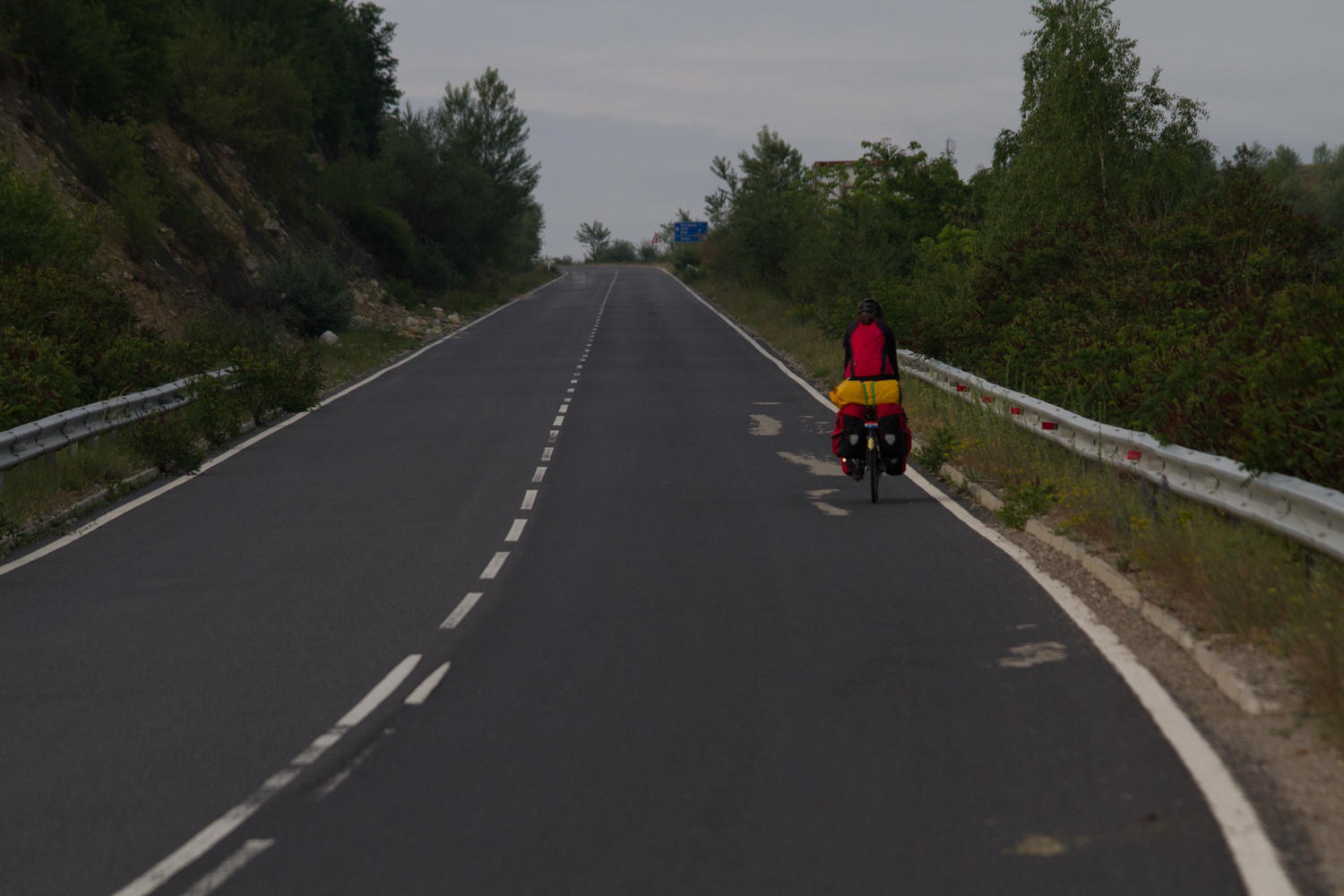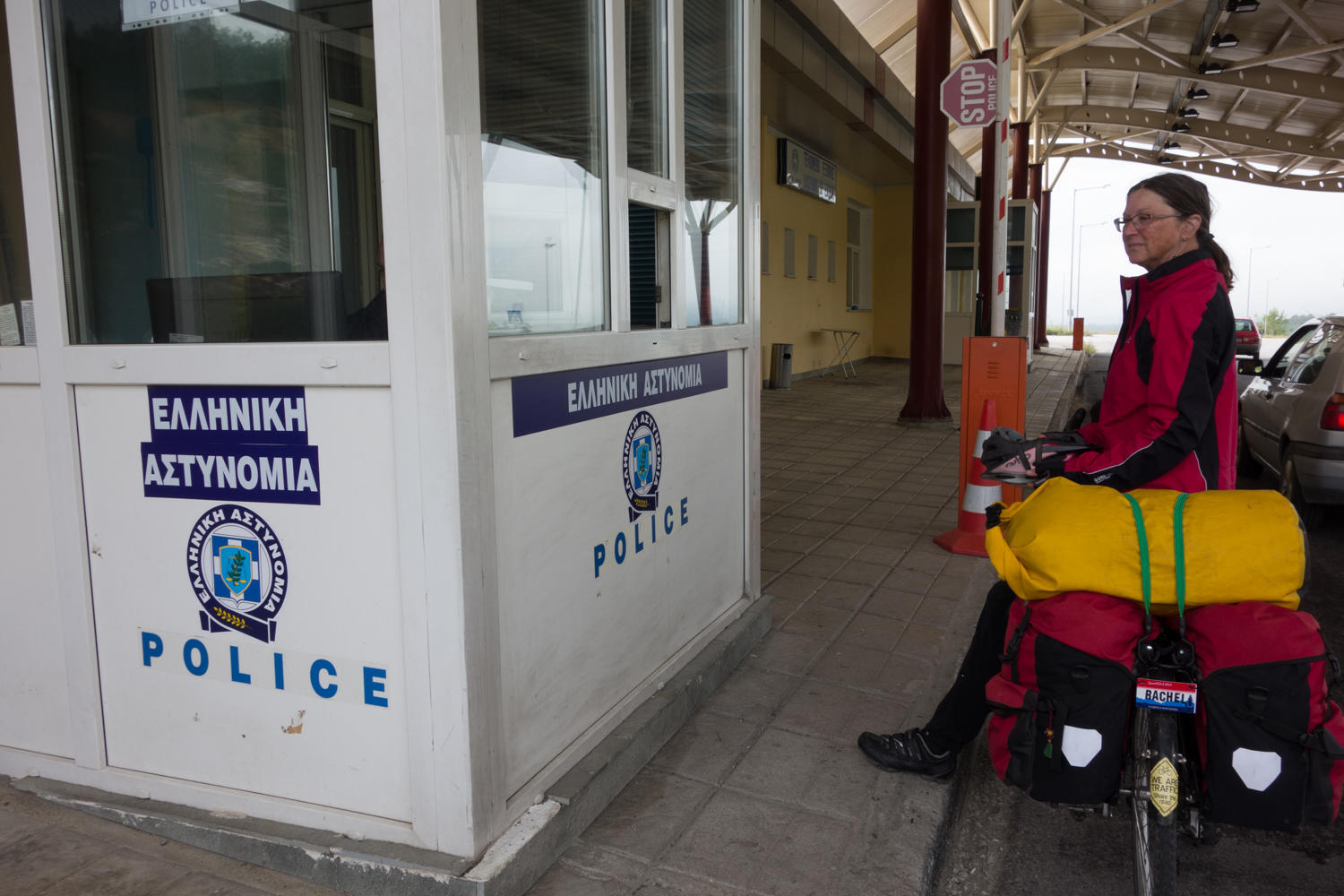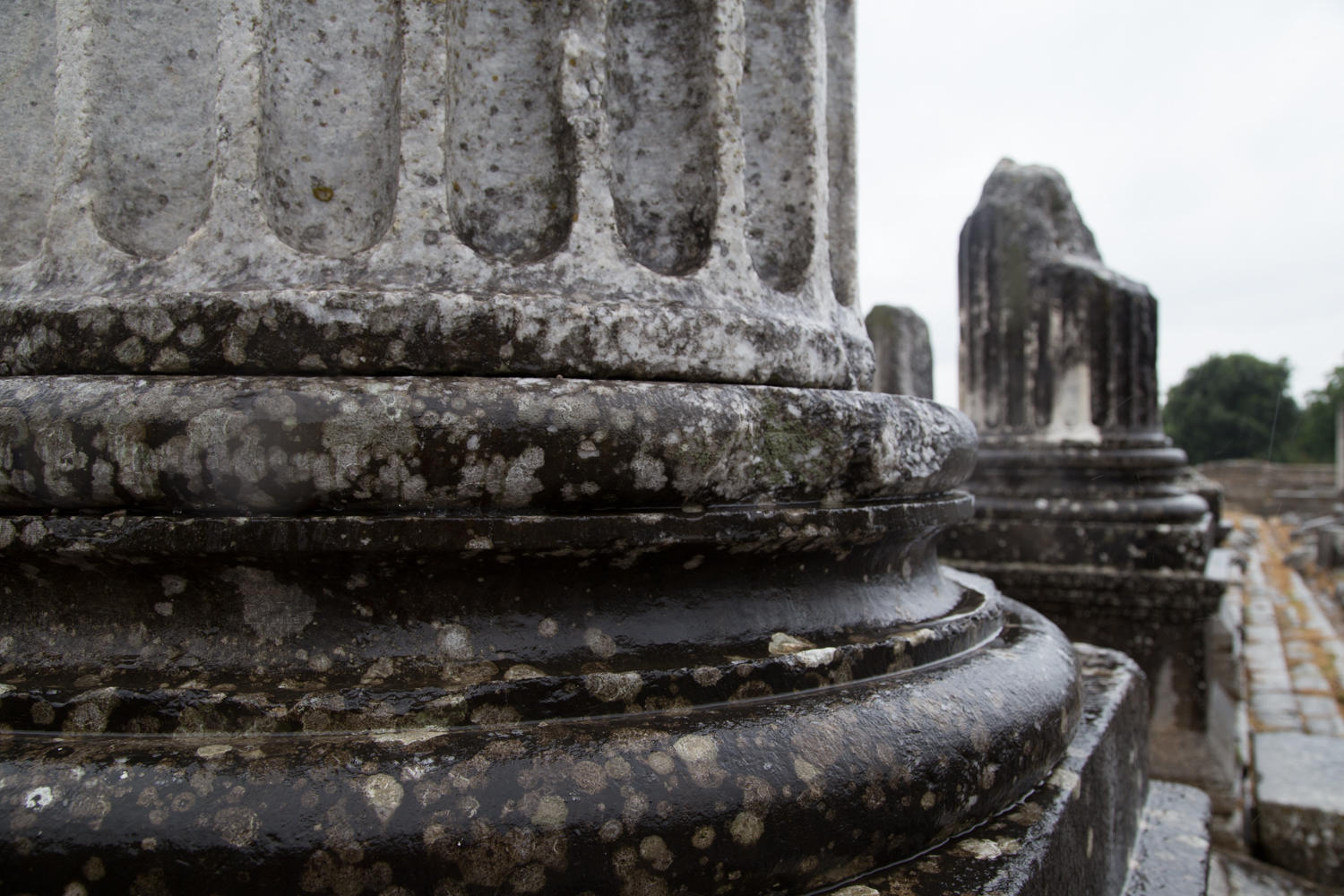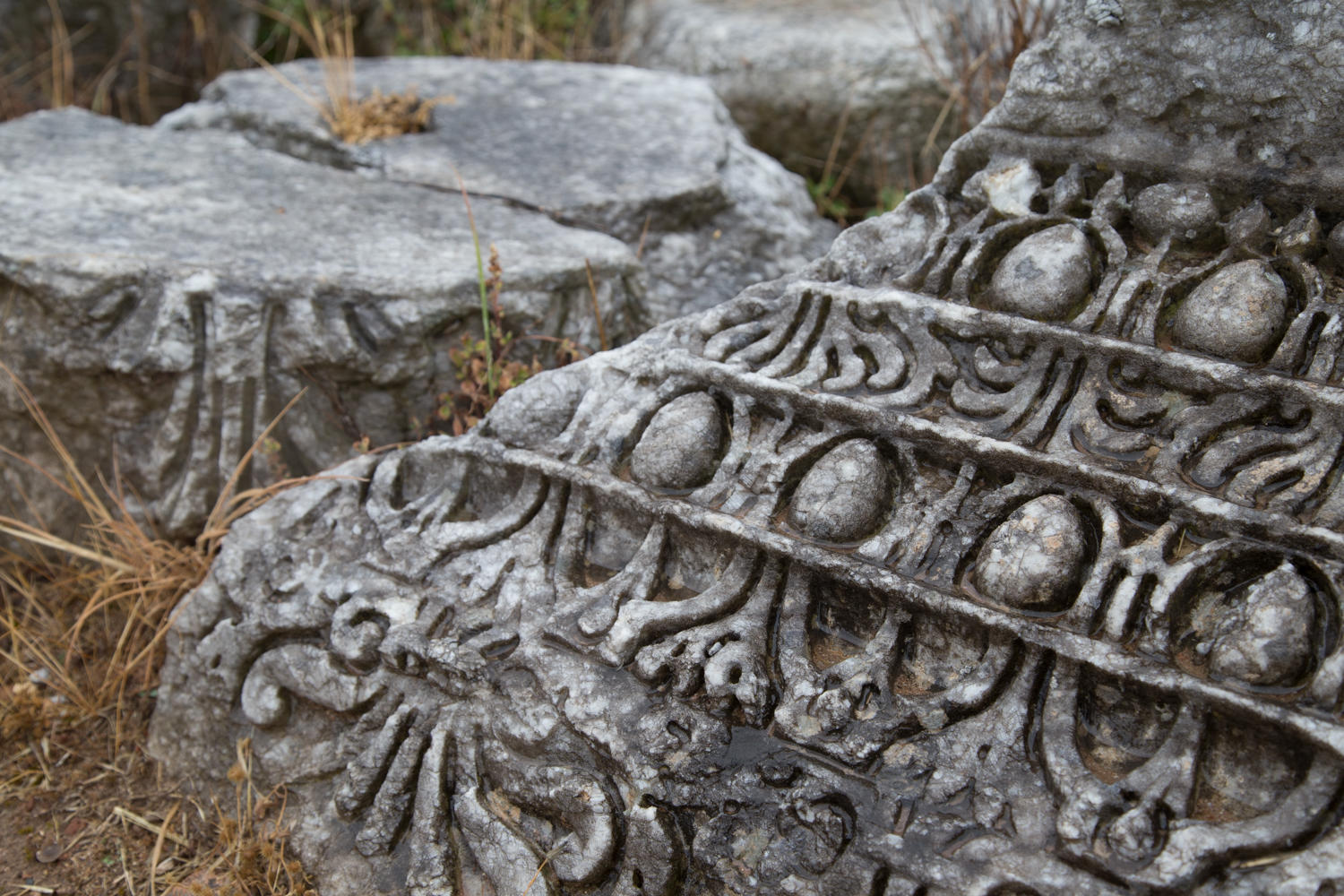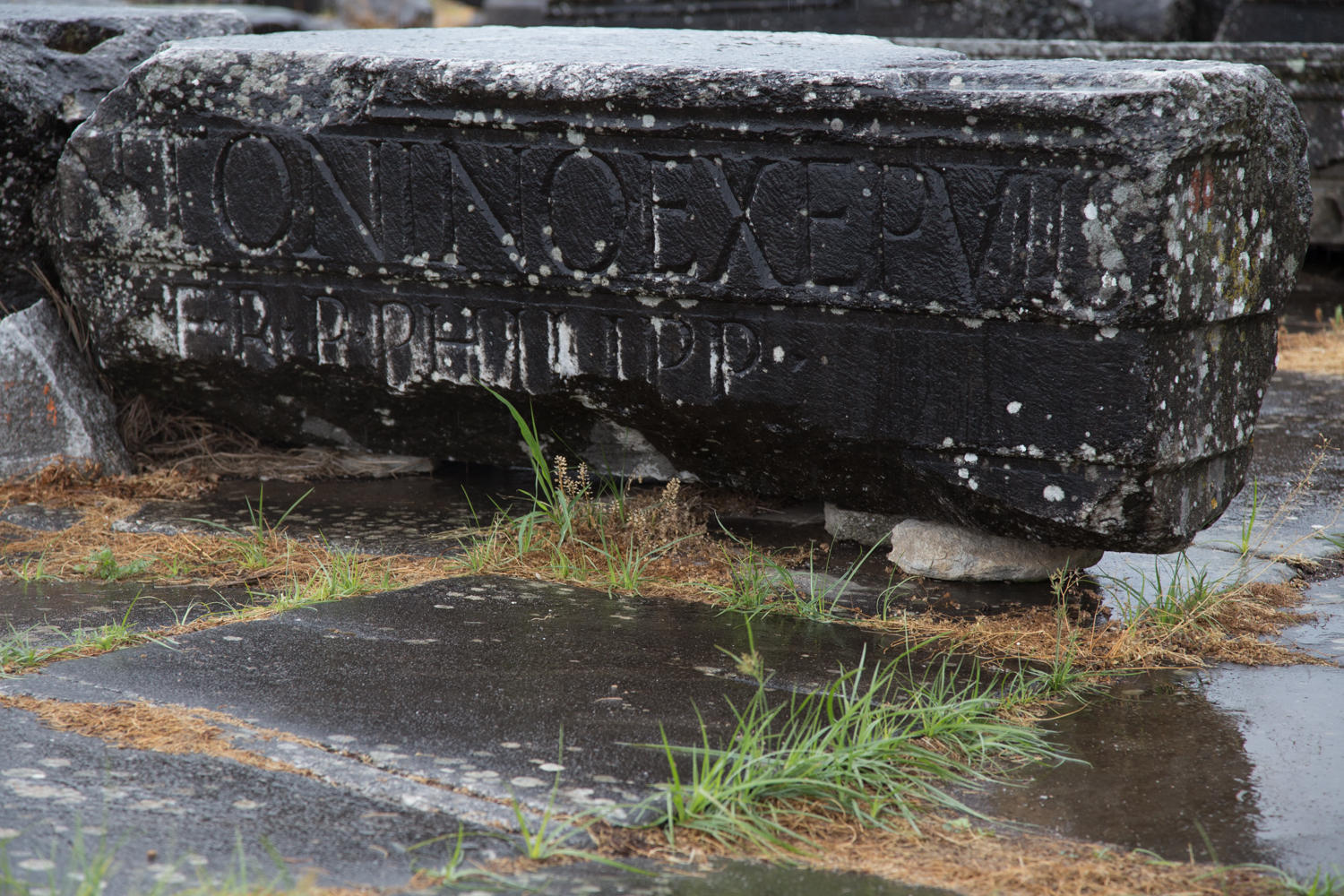May 28, 2015
to Lydia: into Greece
"We are in the land of the sweets!" Patrick says. Because of an early start, we have made it to Drama before noon and stop for our first Baklava and cream puffs in Greece. We still carry Euros from when we left Germany and through Slovakia so no need to find money exchange or ATM. This will be our last country for awhile with the Euro as currency.
We had a short climb from the valley and then a final 300 meter climb to the Bulgarian-Greece border. We get our exit stamp from Bulgaria and enter no man's land with fences on either side and into a tunnel before coming out to the checkpoint of Greece, get an entry stamp for Greece. We are in our 10th country on this trip. There is no "Welcome to Greece" sign, so we continue on with a long downhill on a beautiful road, no potholes and a wide shoulder.
We reach Hotel Lydia just before the rain starts. We chose this hotel because it is 600 meters from the ancient city of Philippi. Even with the rain, we walked around the ruins. A little bit of history: First settled by colonists from Thasos in 360 BC. Philip the II of Macedonia captured the city in 356 BC and became a major center in the Hellenistic period. In 42 BC Octavian converted Philippi into a Roman colony. One more event occurred that transformed the city once again. In AD 49/50, the visit by St Paul the Apostle who founded the first Christian Church on European soil. The city declined in the 7th Century and finally destroyed by the Turks in the 14th Century.
Impressions of Bulgaria (in a week):
1. Doorways have strings or beads hanging
2. Money is Lev. 1 Lev = $0.50, coffee is $0.25
3. City centers have small cars for children to rent and ride
4. Historical narrow gauge train from Septemvri to Bansko (and one stop more)
5. May 24th is a national holiday to celebrate when Bulgarian language was developed into a written language
6. Attitude of the people in the north was one of everyone for themselves, became friendlier south of Sofia, the capital of Bulgaria
7. Villages were half empty
8. Factories from the communist era were abandoned and decaying. People who came of age and adult working life during the communist era would like it to come back. Everyone had a job and could get by
9. Abandoned construction everywhere
10. European union has given money for projects, see construction in being done but without incentive to complete
11. In restaurants, there is a tray with oil and vinegar, salt and pepper on the table. Salad dressing is oil and vinegar
12. Trains run on time because the stops are very, very, very quick

| Heart | 0 | Comment | 0 | Link |

| Heart | 0 | Comment | 0 | Link |

| Heart | 0 | Comment | 0 | Link |

| Heart | 0 | Comment | 0 | Link |

| Heart | 0 | Comment | 0 | Link |
Today's ride: 93 km (58 miles)
Total: 3,098 km (1,924 miles)
| Rate this entry's writing | Heart | 0 |
| Comment on this entry | Comment | 0 |
